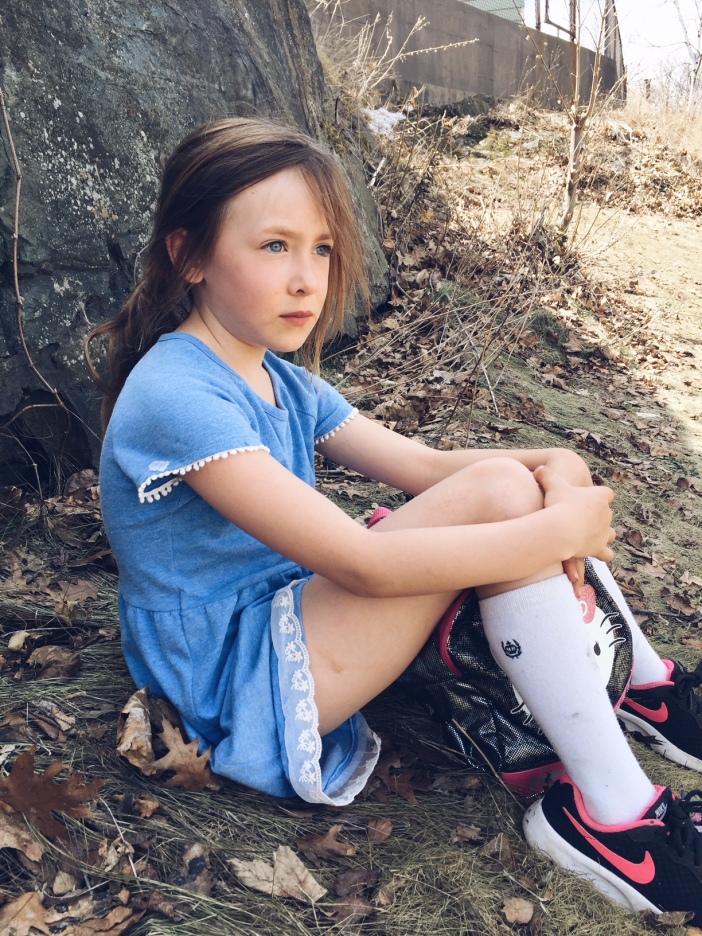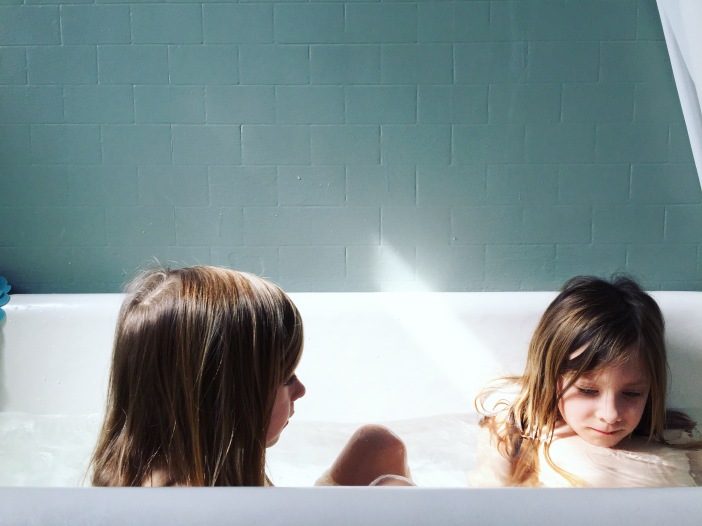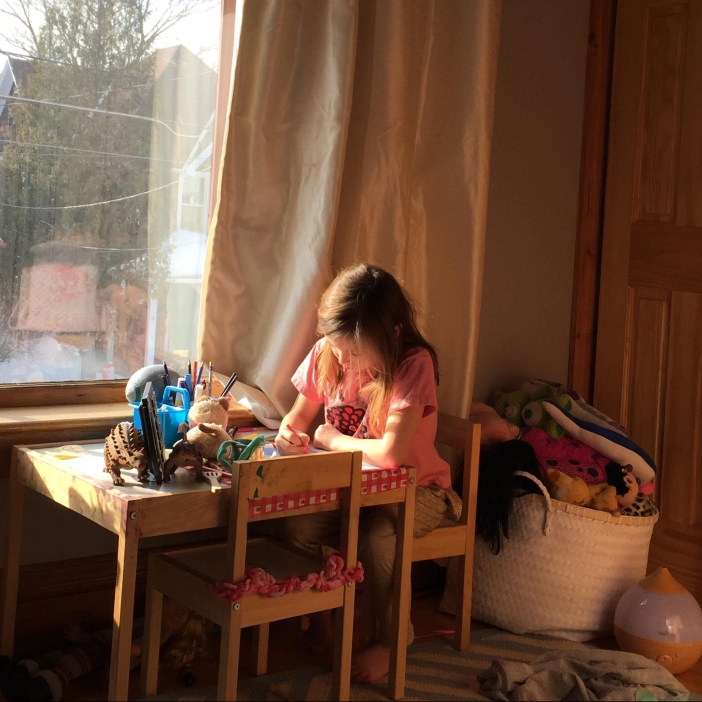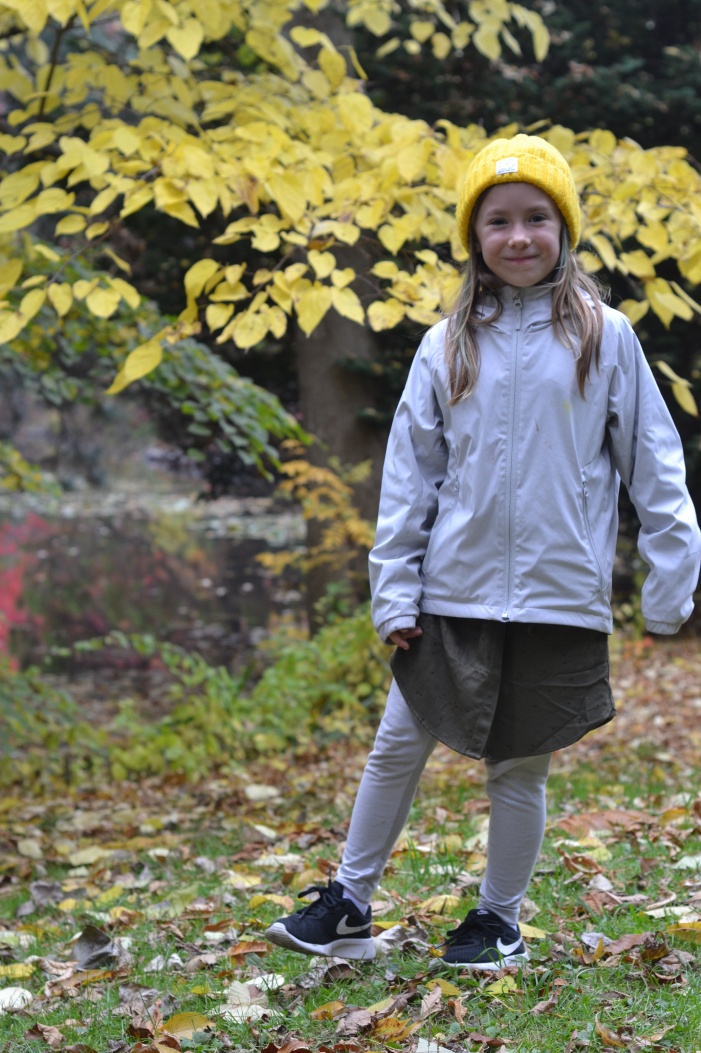At some point after conception, you probably became aware of the term Mommy Wars. Pop culture tells us that the Mommy Wars are some sort of mythical war waged between formerly sensible, professional, loving and complex women who devolve to the point of trying to destroy each other over breastfeeding or vaccinating or homeschooling or or or.
Magazines tell you about this. Blogs warn you, your Facebook feed becomes a battlefield, your friends tell you war stories.
But these are lies. This battle does not exist. The Mommy Wars are not real.
* lemme take a quick sec to stop you if your instinct is to say ‘but I HAVE experienced mommy wars.’ you (and everyone else) have experienced someone being a dick to you. maybe you, yourself, feeling particularly vulnerable when tired and anxious and full of self-doubt, have acted like a dick in how you treated someone else. let’s be honest, you definitely have, and so have I. the things is, when you are a mother, and that dickishness comes from another mother it can feel especially painful, because this shit is HARD and you want, seek and deserve SUPPORT. especially from your sisters in motherhood. but what you experienced does not need or warrant a label so vast and so dismissive as ‘mommy wars.’ the person who hurt, shunned or shamed you is probably hurting, and while it is not your job to heal them I do encourage you to move right along until you find someone who has their shit together enough to treat you with respect. to recap: people can be dicks, motherhood is exhausting, don’t be a dick, ignore the other dicks.
The myth of the catty woman is taught to us early and used to divide us since youth. Girls are told that we are each other’s competition. A competition in thinness, in charm, in blondness and breast size. In cuteness and sexiness and the right balance between the two. In having just the right number of opinions about only the right kinds of topics.
All of this competition is in pursuit of one goal: validation from men. To be the thinnest, cutest, smartest-but-not-too-smart is to be the most desirable. Desirable under the gaze of the rules of the western patriarchy. These traits are not, I’m happy to tell you, in any way the objective truth about what makes women valuable. These are the archetype that has emerged after eons of cultural conditioning defined by the parties in power: straight, white, cis men.
Let me say this one more time to be clear (and to remind myself): the domestic goddess Barbie Instagram woman that has been forced into your mind’s eye to represent the ideal of beauty and worth is a lie. She is not a real woman; she is created by institutions of men who know they can gain both power and profit by causing us to hate ourselves and each other for their benefit.
To be fat or angry or queer or awkward or smarter than they are is an affront to their desires. And though very few of us are the perfect Barbie, we are given access to their desire if we tick some of the boxes. In this way, you can be thin but not cute and feminine but not thin and still find room to shame other women who don’t come as close to the Barbie ideal. By giving us hair pats for meeting some of their desires they aim to give us the motivation to try even harder to please them and meet their standards.
The trick is that we have been taught that THEIR desires are the currency we need to get through life, and therefore we are willing to sell out other women to get that coin. We are willing to harm ourselves and each other to collect that check. This is the greatest con they’ve pulled.
If you spend an endless amount of time, money and emotional energy trying to ‘fix’ yourself, you’re given some latitude. If you WANT to be the domestic goddess Barbie Instagram woman and are willing to SHOW how hard you will TRY by purchasing the right things and disavowing the wrong people, you will be allowed into the room.
If you love yourself as you are, you are a threat and will be treated as such.
If you reject their standards of beauty and feminity, you aren’t even a real woman to them and they will remind you of this.
For those in the back:
This manufactured competition to reach arbitrary female standards (which will never, by the way, be enough) has accomplished the goal of disempowering sisterhood.
The patriarchy uses race, class, body size, and sexual orientation separate women into classes of worthiness. When we accept this as the ‘way it is,’ we end of treating other women poorly in order to secure our own seat at the table (or seat slightly closer to the table). Ask the white suffragettes who sold out the black women who fought alongside them. Ask thin women who mock fat women to get a laugh out of men. Ask rich women who claim superiority over poor women.
When we experience and participate girl-on-girl bullying in middle school, we are doing the bidding of the patriarchy. When we blame women for their own sexual assaults because they were drunk or wearing a short skirt, we are doing their work for them. When we don’t believe the accounts of women who experience workplace harassment, we chip away at the strength of our bond.
Even when you know this and accept this and analyze this truth, it’s hard to break free of our conditioning. But we have to try.
Lane, you ask me if you are actually still reading, what does this have to do with Mommy Wars?
When we accept the term Mommy Wars, we serve them another win. We let them co-opt our most unique experience as women, motherhood, and make it into another popularity contest and a standardized test that finds out how good of a BettyCrocker-JuneCleaver-virtuous-but-still-sexual-mommy you are. When legitimate disagreements between adult women living through the transitions of motherhood are reduced to pejorative cat-fights between bitchy girls, we lose.
Not only do men not carry children or give birth, they also still (hello, 2017!) do not do a proportionate share of the housework, childrearing tasks, or emotional labor despite the changes in recent decades to work roles and breadwinners. Read about it. Read more. Some more. Never stop reading about it. There is always more evidence of this. This is not fair to women and does not let men live up to their potential.
Time spent wasted on the concept of Mommy Wars distracts from the fact that it is generally not women who are benefitting from the unpaid, unseen and unattributed work of mothers.
Spoiler alert: it’s men. They’re benefitting.
The very premise of the Mommy Wars is created by the patriarchy as just one more way that approval from men can give us the illusion of access to power. The premise is that women are out to get other women and mothers specifically have an interest in berating each other. It suggests you can ‘win’ at motherhood and live up to the standards they have created. When we accept that very false premise we see each other as competition instead of support. We see motherhood as another performative act that requires approval.
When we engage in this thinking, we take energy away from the fight for our own equality, we lose the chance to validate each other’s experiences, we do the work of the patriarchy by sowing seeds of doubt and fear in our ability to be the ‘right’ kind of woman and the ‘good’ kind of mother.
FUCK your Mommy Wars.
Instead of Mommy Wars, I’ll judge women based on the validity of their positions. On the sum of their experiences. On their treatment of me and my children.
To resist the patriarchy, I will question the conditioning that asks me to compete with other women for the uncompensated rewards of meeting the patriarchal standards.
To destroy the patriarchy, I will question my emotional responses to heated dialogues with women. I will provide support to those who support me, particularly those who fall outside the parameters of western patriarchal standards.
To defy the patriarchy, I will trust women and mothers to follow their intuition. I will believe women and mothers when they share their experiences. I will give that same grace to myself.
When we stop seeing the approval of men as the currency, suddenly women are not your competition.
We don’t need them to approve of how we look, of what we say, of how we approach motherhood and parenting.
We can seek their partnership but not for the price of living up to their standards.
If we begin to dismantle a lifetime of thinking we stop needing and wanting to become the imaginary, idealized woman and begin to see that other real, flawed women are our allies.
Fuck their Mommy Wars.



 The heart of my seven-year-old is a simple, complicated thing.
The heart of my seven-year-old is a simple, complicated thing.
